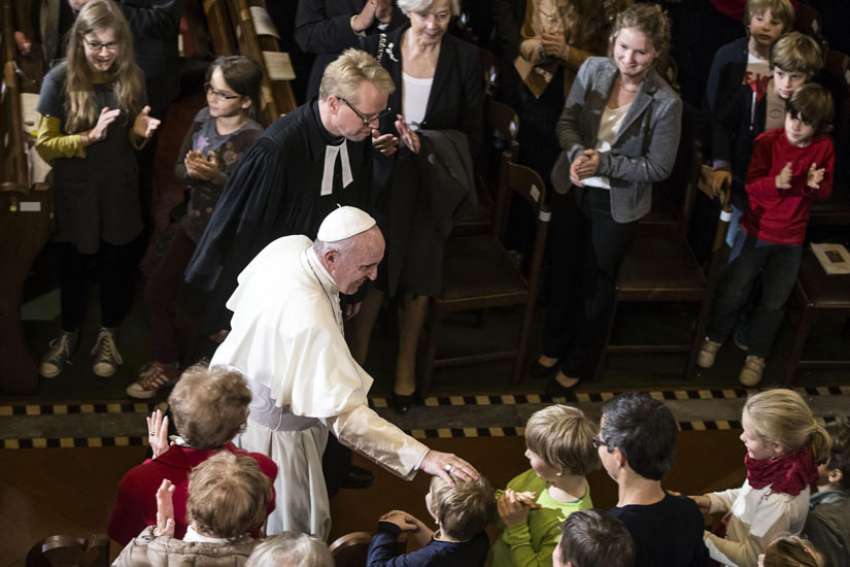For Lutherans, the final day of October is called Reformation Day. It honours Martin Luther, the excommunicated Catholic monk whose anti-Rome protest in 1517 sparked a European revolt that sent Christendom into decades of religious, social and political convulsion.
When Luther posted his 95 theses to the door of a church in Wittenberg, Germany, he inadvertently lit a fuse of rebellion against the Catholic Church that exploded into a bitter schism and, for much of Europe, outright war. To this day, Christianity remains wounded and divided.
And that is precisely why the Pope should be in Sweden. Restoring unity among Christians is a key Church objective launched 50 years ago at Vatican II. Despite some progress, particularly in the Lutheran-Catholic relationship, undoing centuries of often-hostile division is painstakingly slow. But by his presence in Sweden Francis can publicly express remorse at the divisions and affirm that the often-difficult journey to reconciliation — a pilgrimage to full Christian unity — should be faithfully pursued.
A useful step before moving forward is to turn and confront the past. Earlier this year, when discussing his Sweden trip, Francis conceded that the 16th-century Church was infected with corruption under a Vatican hierarchy that valued money and power. Luther’s distress was understandable.
“The Church was not exactly a model to imitate,” Francis said in rare understatement. “I think that the intentions of Martin Luther were not mistaken.”
Those initial intentions weren’t to launch a continental movement to break away from the Church or establish new Christian denominations. Luther, an intellectual Augustinian monk, craved Catholic reform, not rebellion. He yearned for a purified Church that more closely mirrored Bible teachings. But he posted his 95 theses as Johannes Gutenberg’s new printing press was gaining popularity. Within weeks Luther’s words gained a life of their own after printed copies went viral across Europe.
In some respects, Francis resembles Luther. His papacy has raised a call for a simpler, humbler Christ-centred Church. He is working to make the Church less clerical, less bureaucratic, less showy. The Church should be poor and for the poor, Francis has said, and it should be a Church led by those who seek to serve, not be served. Luther would agree.
Five centuries ago Luther’s treatise tore the Catholic Church apart. Francis the reformer won’t undo 500 years of painful history by going to Sweden. But he can take the Church a small step further down a long and difficult path to reconciliation.


